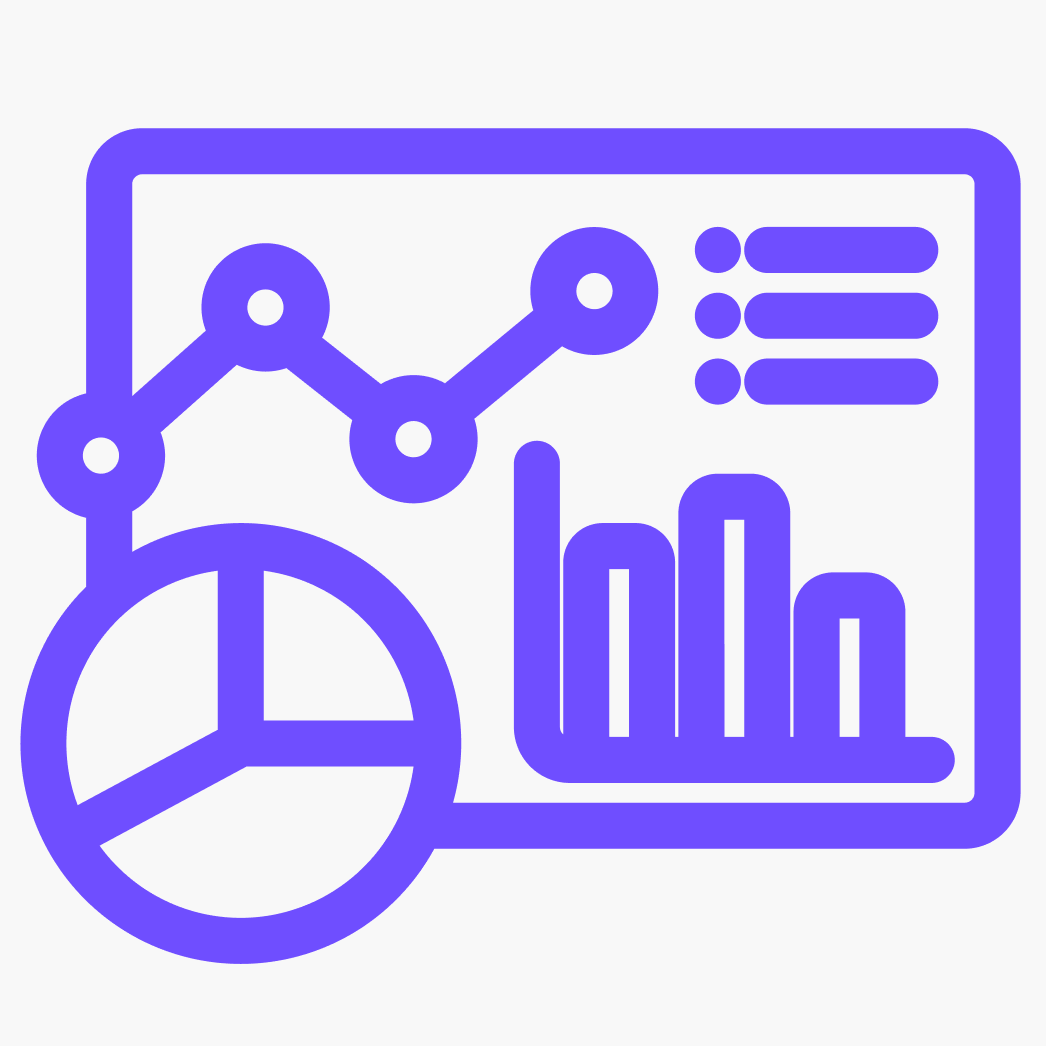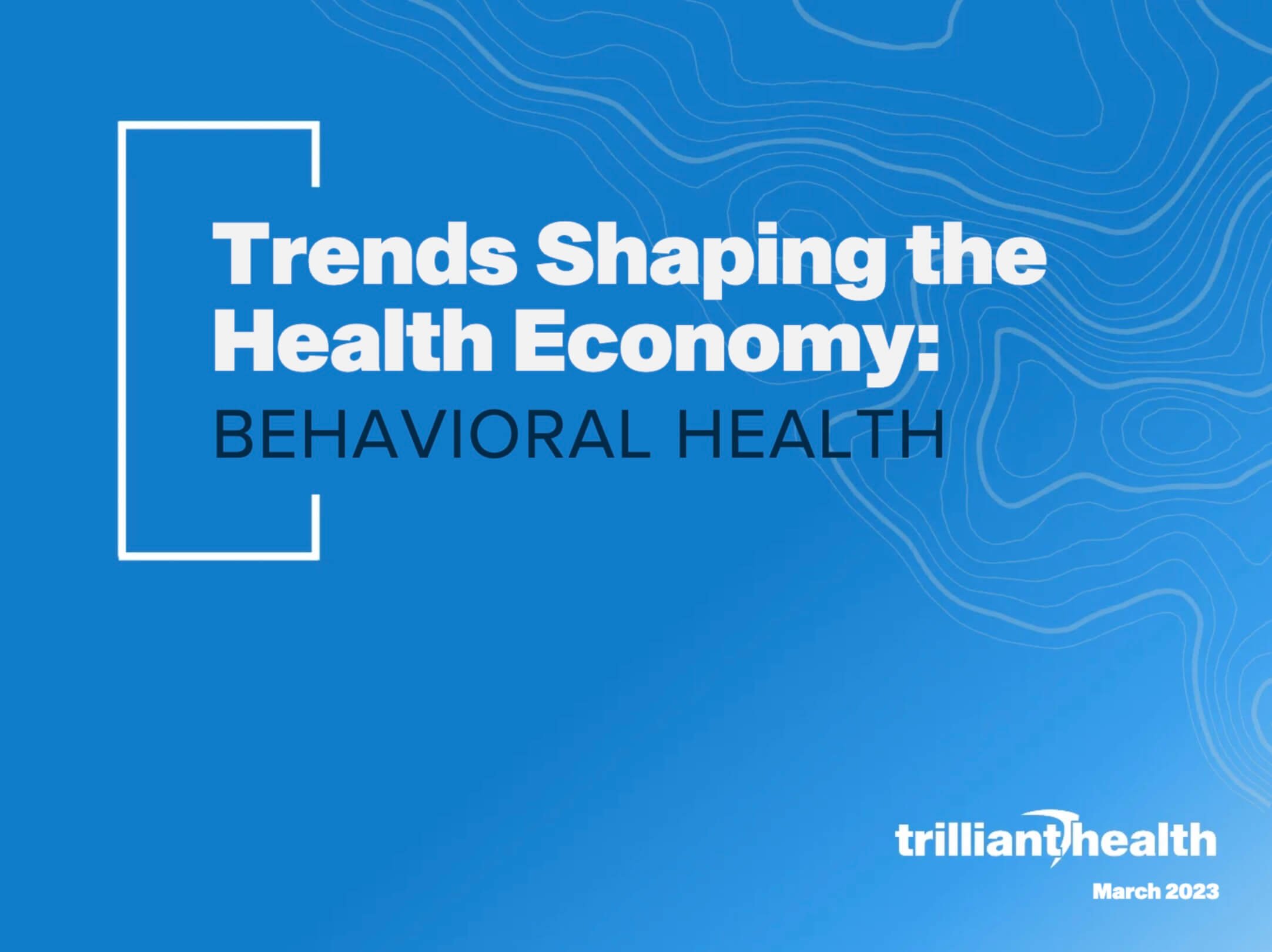2023 Trends Shaping the Health Economy: Behavioral Health
The Trends Shaping the Health Economy: Behavioral Health report highlights eight macro trends to explore how the pandemic altered behavioral health diagnosis and treatment in America through the lens of supply, demand and yield.
- Introduction
- Demand
- Supply
- Yield
- Conclusion
- Methodology
Report Summary
While the magnitude of the national behavioral crisis is well documented by government agencies (e.g., CDC, SAMHSA) and in the academic literature, less is known about how the pandemic changed the behavioral health care journey and the extent to which certain populations and geographies were differentially impacted.
This report is designed to provide a data-driven foundation for every stakeholder to think about the demand, supply and yield trends influencing the future of the behavioral health economy.
Key Takeaways
- In 2021, 22.8% of adults had a mental illness, while only 18.8% of adults received any form of treatment.
- Adderall prescriptions skyrocketed by 58.2% in the 22-44 age cohort from Q1 2018 to Q2 2022.
- Americans under 18 are experiencing high rates of certain behavioral health conditions, including a 107.4% increase in eating disorder diagnoses and a 44% increase in depression disorders.
Methodology
A variety of data sources were leveraged as part of this research, with most insights gleaned from Trilliant Health’s proprietary datasets with visibility into patients and providers across the country. Trilliant Health’s national all-payer claims dataset combines commercial, Medicare Advantage, traditional Medicare and Medicaid claims, which provides a nationally representative sample accounting for more than 300 million American lives on a deidentified basis. Trilliant Health’s consumer dataset includes a range of psychographic (e.g., behaviors, preferences), demographic, social determinants (e.g., broadband) and lifestyle (e.g., wearable) data, inclusive of variables sourced from third-party datasets.
Trilliant Health’s Demand Forecast leverages General Linear Mixed Models (GLMMs) in combination with more than 100B rows of claims data to project future demand for healthcare services over a 5- and 10-year horizon. Trilliant Health’s Provider Directory enables a direct view into providers and their practice patterns.
Additional data were obtained from a variety of public sources, including individual company financial statements, Census Bureau, Kaiser Family Foundation, the Congressional Budget Office, American Hospital Association, American Medical Association, Centers for Disease Control and Prevention, Healthcare Cost Report Information System and the Bureau of Labor Statistics.
Trilliant Health’s Demand Forecast leverages General Linear Mixed Models (GLMMs) in combination with more than 100B rows of claims data to project future demand for healthcare services over a 5- and 10-year horizon. Trilliant Health’s Provider Directory enables a direct view into providers and their practice patterns. Trilliant Health’s health plan price transparency dataset is comprised of health plan machine-readable files that have been parsed, then analyzed in combination with the Provider Directory to reveal the negotiated reimbursement rate between any health plan and any provider for any service rendered at any location.
Additional data were obtained from a variety of public sources, including individual company financial statements, Census Bureau, Kaiser Family Foundation, the Congressional Budget Office, American Hospital Association, American Medical Association, Centers for Disease Control and Prevention, Healthcare Cost Report Information System and the Bureau of Labor Statistics.






















.png)

















.png?width=171&height=239&name=2025%20Trends%20Report%20Nav%20(1).png)

